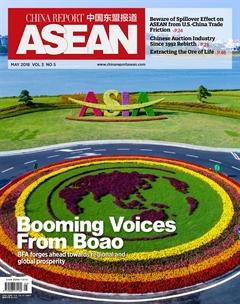打好扶贫攻坚战等
2018-05-14
改革開放30多年来,中国经济社会发展取得很大成就,人民生活水平总体上发生很大变化,几亿贫困人口脱贫,完成这期间全世界超过70%的减贫任务。但由于中国还处在社会主义初级阶段,由于国家大、各地发展条件不同,中国还有为数不少的困难群众,扶贫开发依然任重道远。按照农民年人均纯收入2300元的扶贫标准,到2015年底,中国农村贫困人口还有5575万人。可见,中国扶贫的工作已经进入“啃硬骨头”阶段。这种背景下,从2014年开始,中国将每年10月17日设立为“扶贫日”。中国将加大投入力度,动员社会各方面力量共同向贫困宣战,深入推进扶贫开发,继续打好扶贫攻坚战,帮助困难群众早日脱贫致富,稳定实现扶贫对象不愁吃、不愁穿,保障其义务教育、基本医疗、住房,努力推动贫困地区经济社会加快发展。
Alleviating Poverty
Since China introduced the policy of reform and opening up in the late 1970s, great economic and social progress has been made, leading to significant improvement in the overall standards of living. As a result, several hundred million people have been lifted out of poverty, accounting for more than 70 percent of poverty reduction worldwide during the period. Much remains to be done, however, to eliminate still substantial pockets of poverty, given the fact that China, a country with a large population, is still in the primary stage of socialism, and its diverse regions show varying levels of development.
At the end of 2015, some 55.75 million of Chinas rural residents still lived below the national poverty line, with an annual net income of less than RMB 2,300 per capita. Chinas poverty alleviation initiatives are now facing some of their most daunting challenges. Against such a backdrop, in 2014 China launched its first National Poverty Alleviation Day, which is now marked on October 17 each year. China will allocate greater resources to poverty relief and mobilize all sectors of society to join the fight against poverty. Development efforts aimed specifically at reducing poverty will be increased to put an early end to poverty. Effective measures will be implemented to steadily improve access to adequate food and daily necessities, compulsory education, basic medical services and housing.
精准扶贫、精准脱贫
2014年12月11日闭幕的中国中央经济工作会议,首次在中央工作层面明确提出了精准脱贫的概念;2015年6月18日,习近平在贵州调研时强调,扶贫开发“贵在精准,重在精准,成败之举在于精准”,“精准扶贫”随后成为社会各界热议的关键词。2015年11月3日发布的“十三五规划建议”中,进一步作出“实施精准扶贫、精准脱贫”的工作部署。精准脱贫,就是要防止用经济收入的平均数掩盖大多数,更加注重保障基本民生,更加关注低收入群众生活。精准扶贫,则是要做到对贫困人口进行精确识别、精确帮扶,对扶贫工作做到精确管理。中央明确提出精准扶贫、精准脱贫,是因为中国的扶贫开发工作已进入“啃硬骨头、攻坚拔寨”的冲刺期。为了真正实现“精准”目标,习近平提出了“扶贫对象精准、措施到户精准、项目安排精准、资金使用精准、因村派人精准、脱贫成效精准”的具体要求。
Targeted Poverty-alleviation Approach
At the close of the Central Economic Work Meeting on December 11, 2014, central leadership floated the idea of a targeted approach to alleviating poverty. On June 18, 2015, during a visit to Guizhou Province, Chinese President Xi Jinping once again brought up the subject, declaring that it would determine the success of the poverty alleviation drive. It has subsequently become a hot topic with the general public. In its Proposal for Formulating the 13th Five-year Plan for National Economic and Social Development released in November 2015, the 18th CPC Central Committee specified targeted measures for the coming five years. Targeted efforts are designed to ensure that average income statistics do not eclipse the true living conditions of many in hardship. Such efforts require attention to detail. Greater emphasis will be placed on identifying low-income groups in need of assistance, so that they receive proper attention and their basic standard of living is guaranteed. Central leadership proposed such a targeted approach as China faces the daunting challenge of eliminating the final pockets of poverty across the country. To ensure that poverty reduction efforts are optimally effective, Xi Jinping called for policies and programs of assistance to be tailored to the needs of individual families in conjunction with targeted funding and village-specific expert support, and to be pursued with results-oriented focus.
